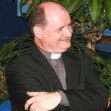The head of the Church’s new umbrella body for Catholic schools has said he believes that  perhaps 10 per cent of primary schools currently under Church patronage will be transferred to alternative patrons.
perhaps 10 per cent of primary schools currently under Church patronage will be transferred to alternative patrons.
Fr Michael Drumm, chairman of the Catholic Schools Partnership (CSP), said that this figure would be more realistic than the 50 per cent that Education Minister Ruairi Quinn suggested last month, given the logistical difficulties involved.
Fr Drumm, speaking yesterday at the launch of a position paper published by the CSP said the 50 per cent figure had destabilised school communities, raising fears that change might be imposed from the top down.
The process, he said would be a bottom-up exercise which could only begin in response to local demand on the ground, the Irish Times reports.
Fr Drumm also said that the claim made by Mr Quinn last week that the amount of time spent preparing children for the sacraments was responsible for declining literacy and numeracy standards was “laughable”.
There was not the slightest shred of evidence to support this charge, Fr Drumm said.
The CSP position paper made clear that rushing the process of transferring some Catholic schools to other patrons would draw hostility and resentment.
The paper, entitled Catholic Schools in the Republic of Ireland: A Position Paper by the Catholic Schools Partnership, called for a lengthy period of consultation and said changes should only be considered after a series of pilot studies were assessed.
By contrast, Minister for Education Ruairí Quinn envisages a speedy timetable, where the process could begin by January.
In its paper, the partnership backs a series of pilot projects to examine public demand for change. It also warns of costs involved in school transfer. Catholic schools, it says, may require some compensation for the investment made in premises.
Last week, Mr Quinn established the Forum on Patronage and Pluralism which will tease out how changes in patronage might occur.
Anne McDonagh, education secretary at the Archbishop of Dublin’s office, said she had received many calls from Catholic schools who feared they might be forced to make changes against their will.
The partnership acknowledges that some Catholic schools may no longer be viable in some areas.
“In such situations,” it says, “the Catholic patron, in dialogue with the local community, should plan for greater diversity of school provision in that area.
“This must be planned locally and based on respect for the rights of parents and all other stakeholders, including local parish communities. If sufficient demand for a school under different patronage can be demonstrated then all of the stakeholders should work in partnership towards this goal.”
The paper also said that the right of parents to choose the type of education their children receive is enshrined in the Irish Constitution and international law.
The paper also made the point that there is “no such thing as a value neutral education. It said, “All schools, whether established by the State or by one or other voluntary group, necessarily and implicitly espouse a vision of the human person and give expression to a particular ethos by their choices, actions and priorities.”
The paper added that State funding for denominational education was not a uniquely Irish phenomenon. It said that throughout the world “democratic societies provide funding and legal protection for a plurality of school types” including faith schools.
There was a lack of clarity in terms of some of the terms being used in the debate over school patronage, the paper said. It said that the term multi-denominational was “used in numerous, often contradictory, senses.”
The failure of the Department of Education and Skills to recognise the designation of non-denominational schooling meant that there is “a tendency to speak only of denominational and multi-denominational schools and to define the latter as more open and inclusive.” This tended to mean that denominational schools were represented as “closed and sectarian.”















